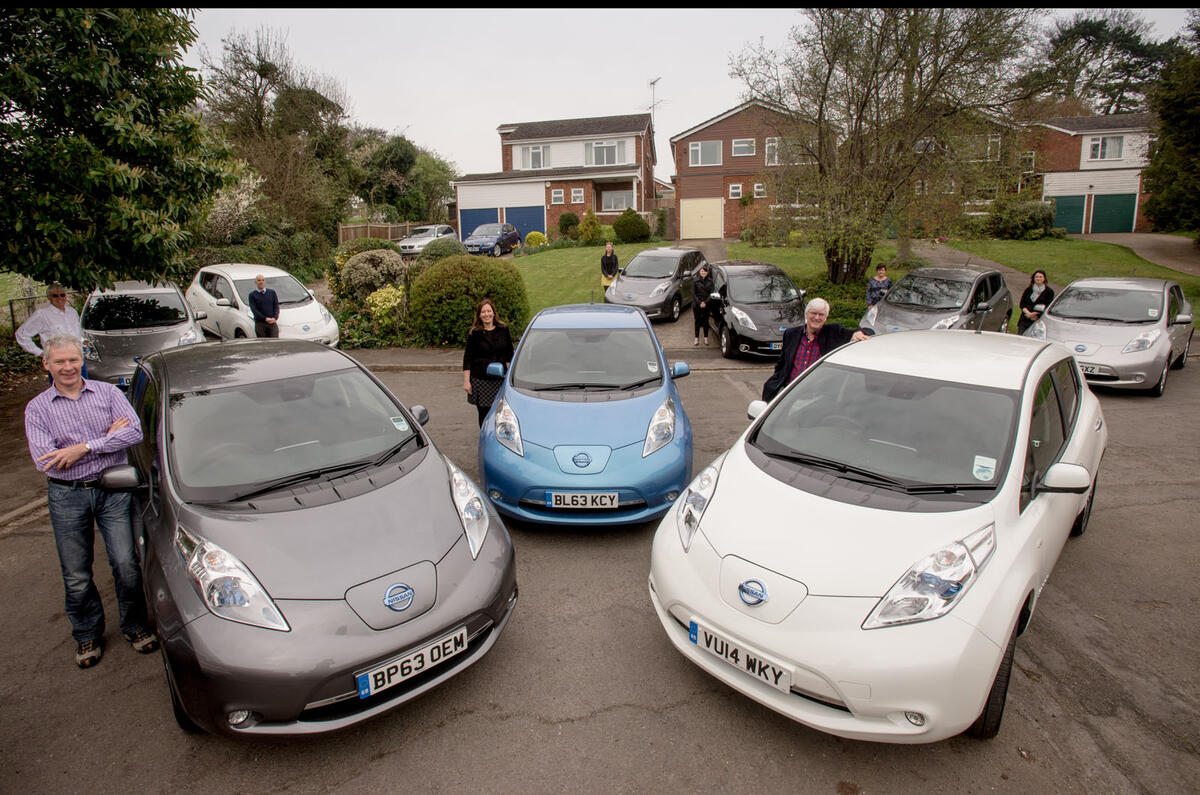An £9m trial that will monitor the impact of electric vehicle charging on the local electricity infrastructure got underway in Buckinghamshire this week.
The ‘My Electric Avenue’ project will examine 11 ‘clusters’ of Nissan Leaf drivers around the country over the next 18 months, and provide information about how best to manage the demand for electricity when a large number of EVs in the same street are plugged in to their charging points at the same time.
The scheme’s first ‘street of the future’ has been created in Marlow, Bucks, where nine neighbours have received their new Leafs. Each ‘cluster’ of drivers has to receive their electricity from the same substation, so must live close to one another. The motorists have leased their Leafs for £100 per month, and had the charging equipment installed for free.
Electricity demand reaches its peak between 5.30-6.30pm, when residents drive home from work, turn on lights, watch television and prepare food. There is currently a question mark over what additional effect the charging of many thousands of electric vehicles would have on the grid.
As part of the scheme, a new piece of technology called Esprit is fitted to each of the participants’ charging posts, as well as at the local substation. If the demand for electricity reaches a certain level, the new device can delay the vehicle charging until later at night when the call for electricity has subsided.
Project director David A Roberts said: “Transition to a low-carbon economy is going to bring some fairly big changes to the way we all use electricity and energy. In particular, as we begin to decarbonise transport, that is going to pose a challenge to the electricity networks, both nationally and locally.
“It’s that local point that we’re really interested in. What we’ve seen with the uptake of technology such as photovoltaic solar panels in people’s homes is ‘clustering’. This is a social occurrence where one person in a street has them installed, and the rest tend to follow.
“Our hypothesis is the same will happen with electric vehicles, which could pose a challenge because the local electricity network isn’t designed to deal with everyone in a street using their appliances at the same time.”
Participants' driving and charging habits will provide information about managing the local electricity network as sales of cars with ‘plug-in’ capability continue to rise. It is also the first trial that directly controls domestic EV charging to prevent underground cables, overhead lines and substations being overloaded.
With some of the nation’s electricity infrastructure first put in place in the 1930s, the project aims to prove a solution that would avoid the need to dig up the roads to install higher capacity electric cables.
The My Electric Avenue project was first announced a year ago, and has now fulfilled all the criteria set out by energy regulator Ofgem to receive full funding from the latter’s low carbon networks fund.
In addition to Marlow, the other residential ‘clusters’ are in Chineham, Chiswick, Lyndhurst, South Gosforth and Wylam, with two more based in South Shields. In addition there are two ‘workplace-based clusters’: Slough Borough Council and Your Homes Newcastle.




Join the debate
Add your comment
Oil is getting more expensive
The current breed of EV is too expensive for what they offers, other than the exception of BMW i3 and Tesla Model S which offer the performance, innovation and sophistication that justifies the hefty price tag in comparison with the conventionally fuelled cars.
-
Hmmm ...
Leaving aside the fact